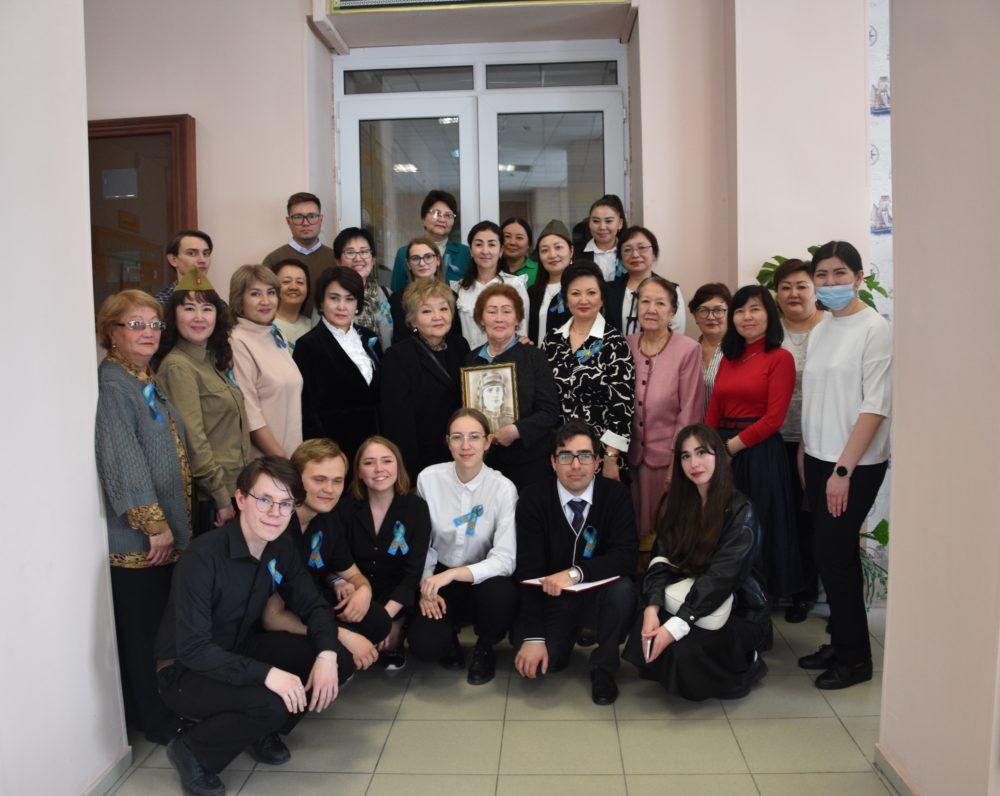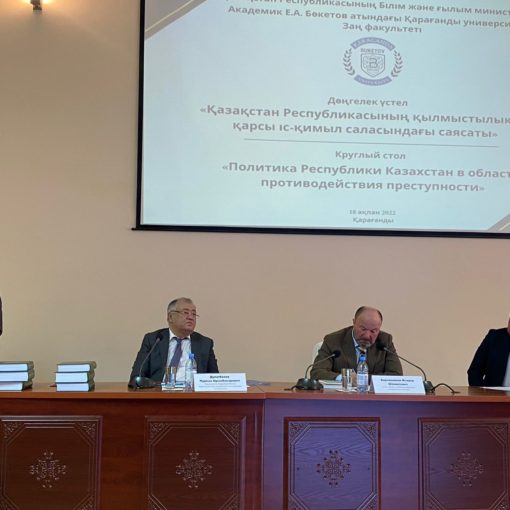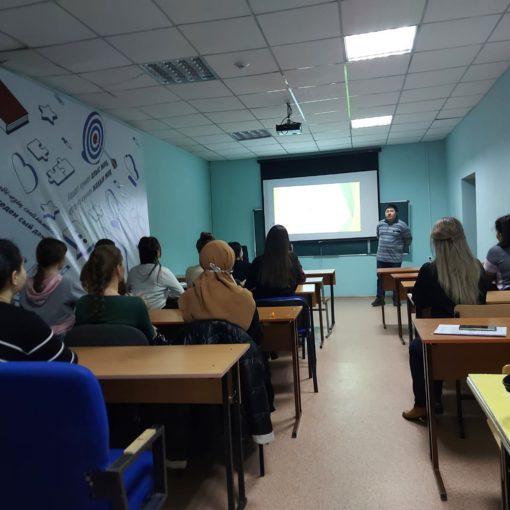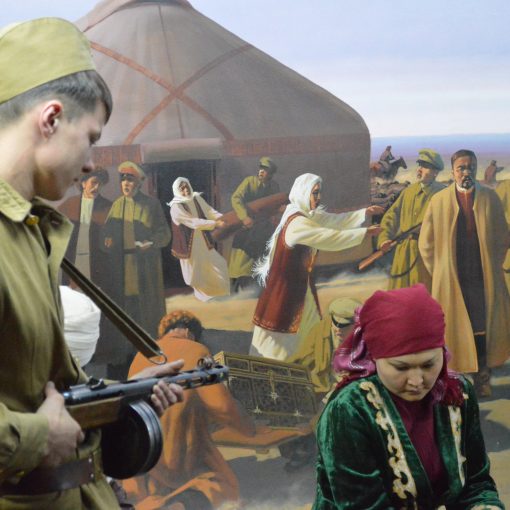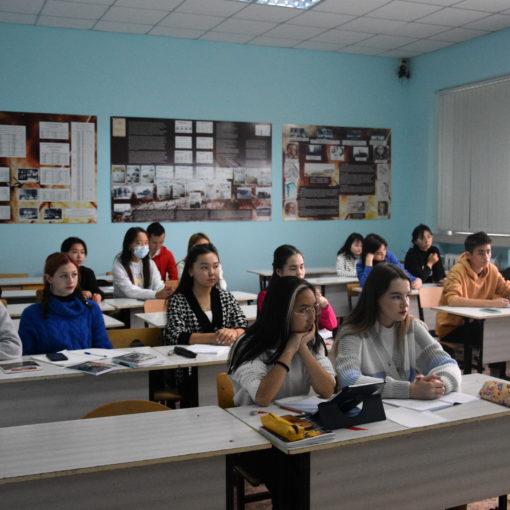I cannot diminish or subtract that life-affirming thought in the words addressed by the great Zhambul to those who died defending the Motherland!
They are burned into the hearts with iron, those who lived, died – without surrendering, gripping the steering wheel with frostbitten hands. There, in the frosty darkness, carrying bread to the besieged Leningrad along the Road of Life on the fragile ice of Lake Ladoga:
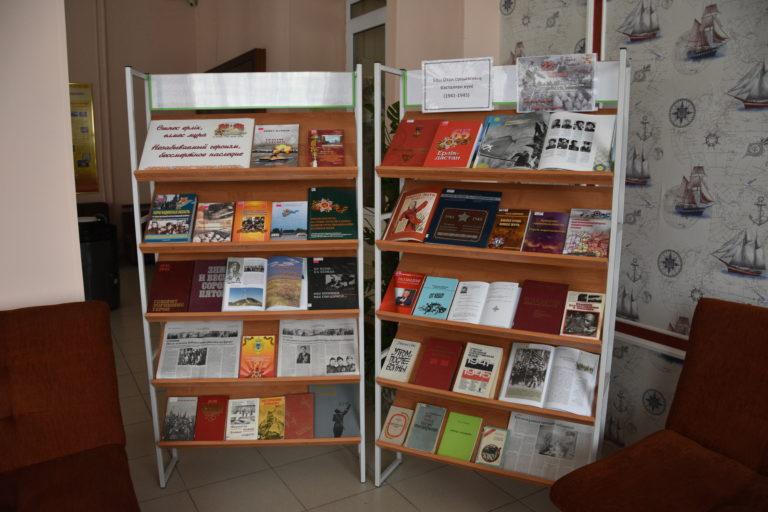
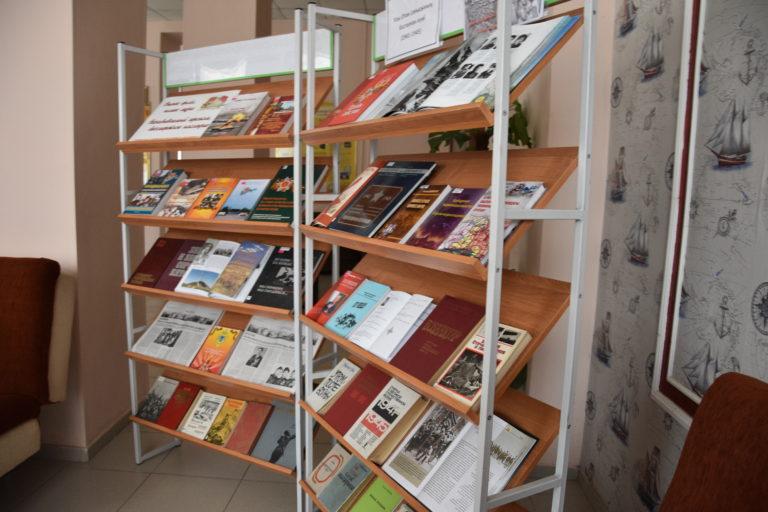
Leningraders, my children!
Leningraders, my pride!
And are we even allowed to forget? Forget? So that it happens again?!
What has passed and gone. Disappeared and vanished into the sticky fog, illuminated by bright spotlights, standing on towers with machine gunners, black as a sign of a railway train, heading with living people through the gates in southern Poland’s deep forests near Krakow, where ‘Arbeit Macht Frei’ or ‘Jedes Das Seine’.
That’s how we began our evening of songs on the eve of the great day – Victory – sacred to the entire people of Kazakhstan – May 9th.
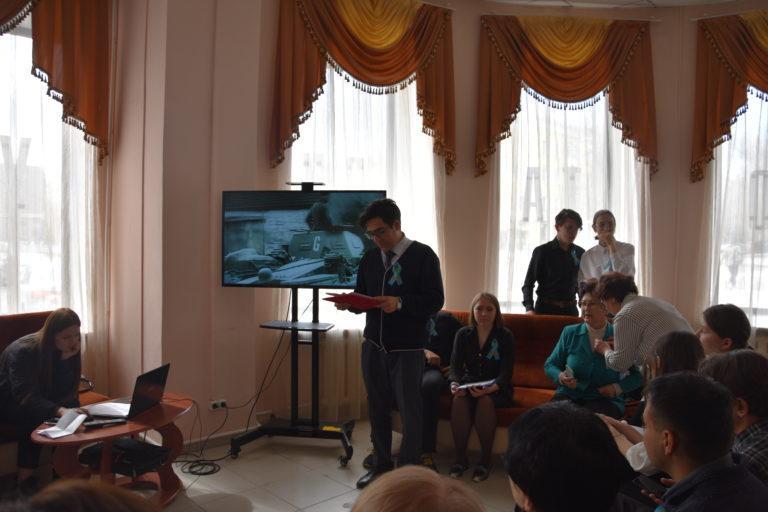
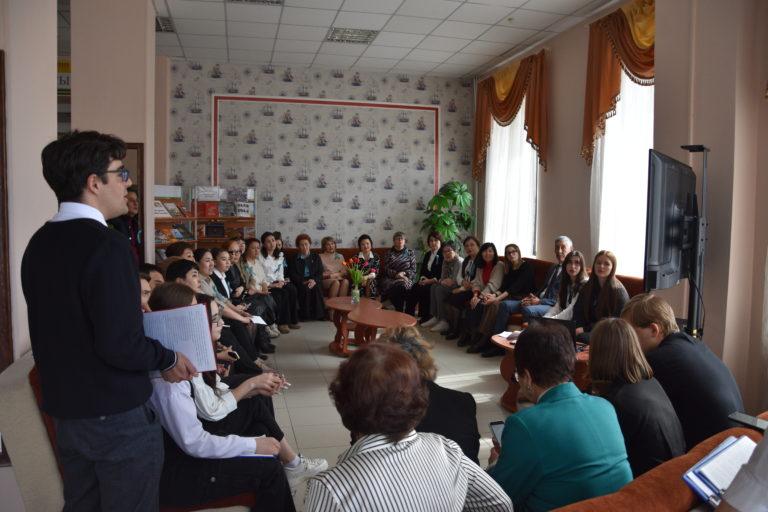
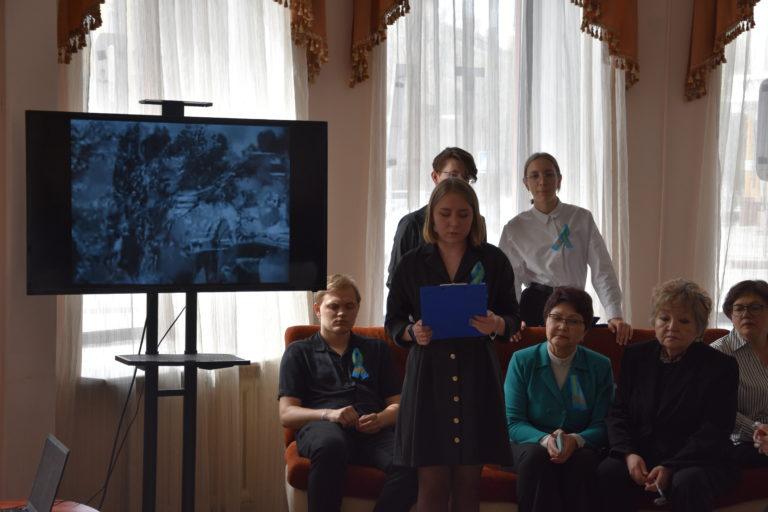
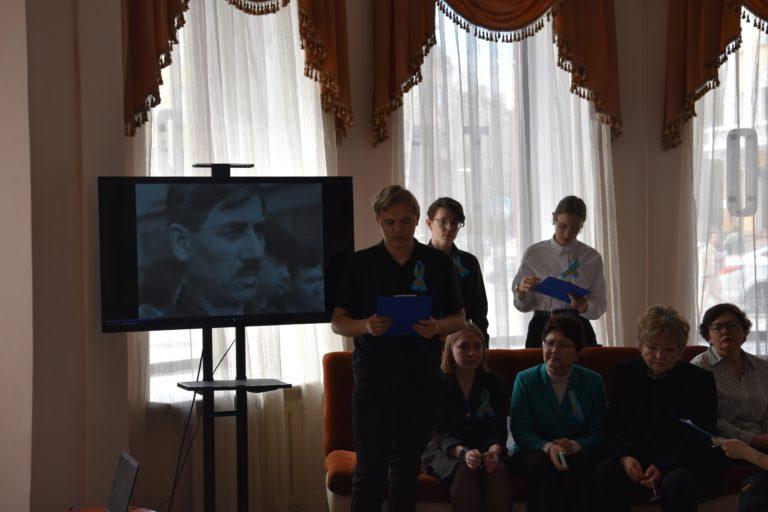
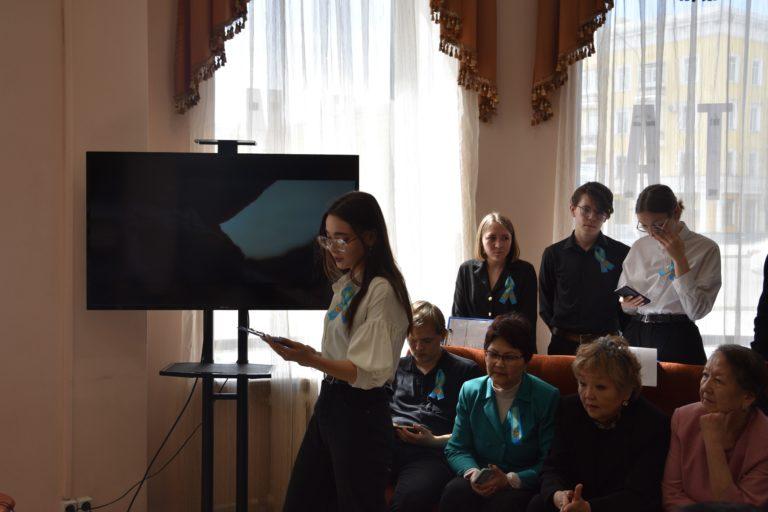
All departments participated in the event, everyone made their contribution.
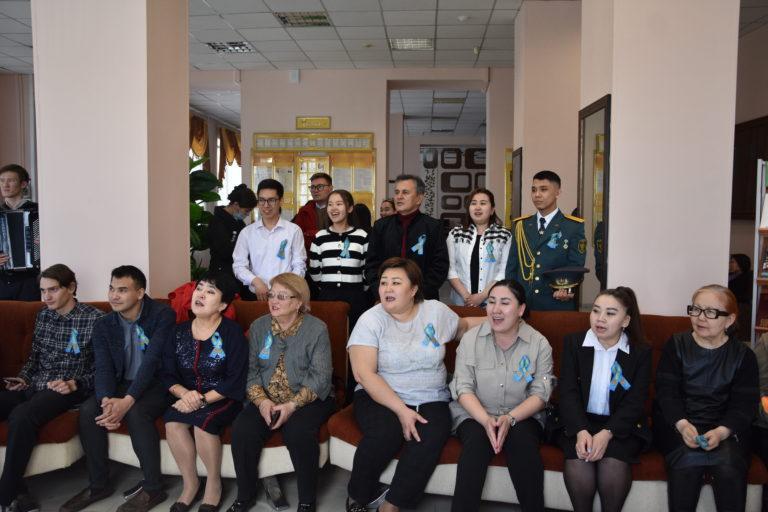
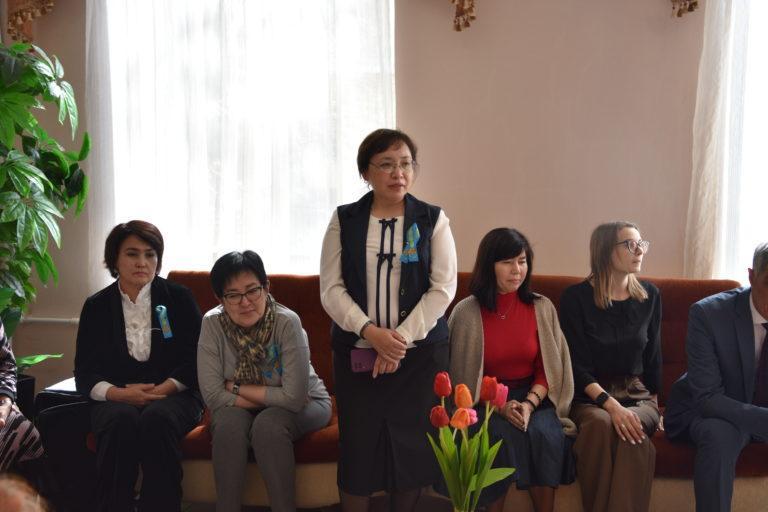
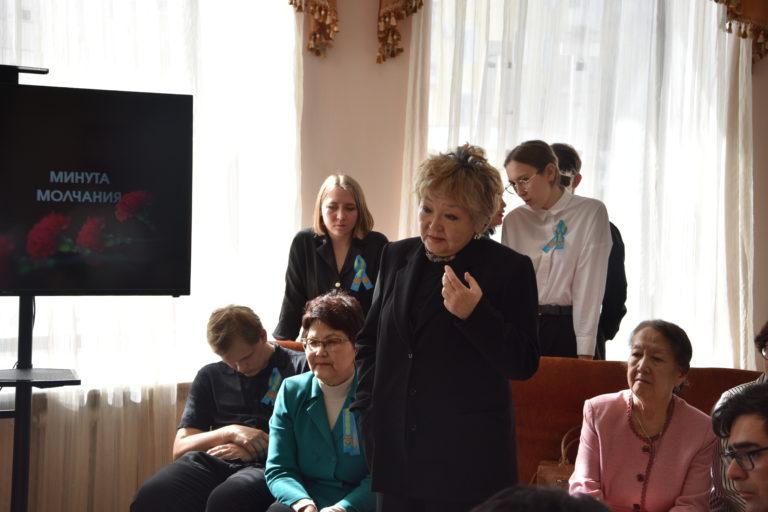
We listened and watched the flame of the Eternal Flame burn in the Alexander Garden at the Tomb of the Unknown Soldier; how other people’s lives, dreams, youth, children, thoughts, hopes, love and faith burn in it. Faith in the best, faith in yourself. In this fire is the whole of human history. The history of the destinies…of our ancestors.
The implementation of the evening of remembrance was not easy, it was not easy in the understanding that and how it was necessary to present that idea in an accessible and intelligible form so that everyone could join in the great event.
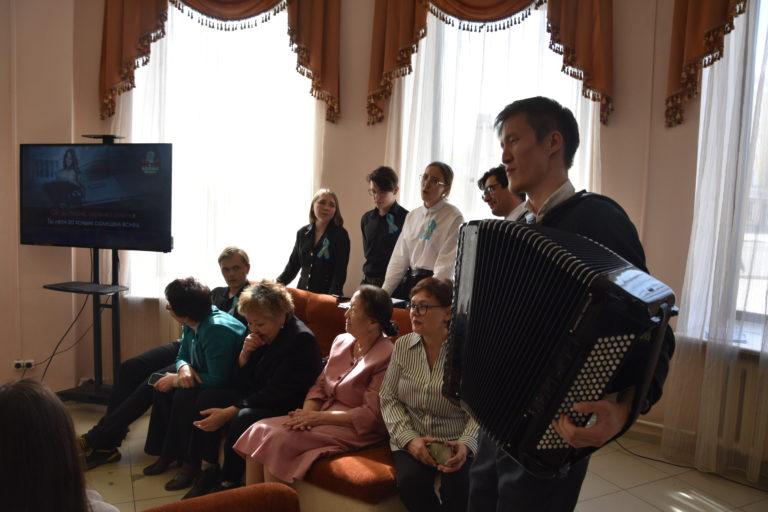
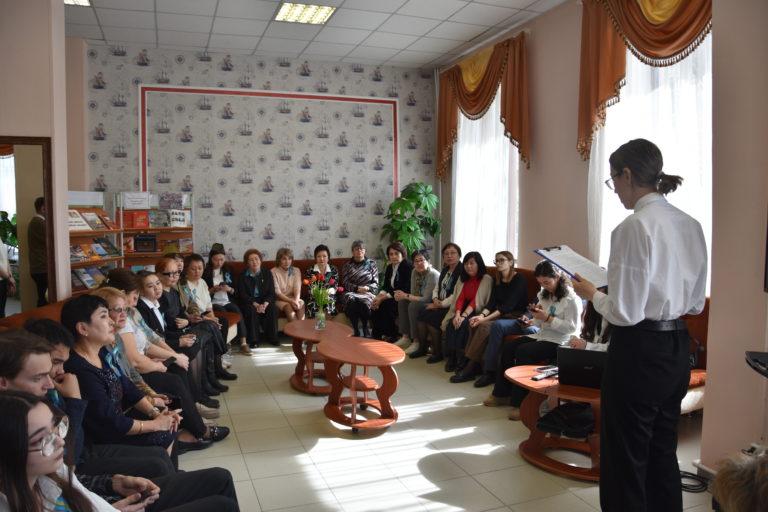
It was not easy for us, and to come up with the first words capable of truly making our task all-encompassing, globalizing, and integrating the people who had to come together in one place and at one time.
We spoke with mother about the war’s cruel strife,
Of how our ancestors lost their precious life,
They knew not of me, nor of my name’s flight,
Yet they struck down foes with precise aim and might…
We were faced with an important task – to tell in such a short time the horror that lasted for several years, the pain that our ancestors experienced.
My first sketches appeared one evening to realize our vision:
closing his eyes, and imagined this picture: with armored tanks rushing across the screen, roaring and blurred, immaculately painted planes and people ready to pull the trigger or hit a defenseless child on the head from behind with the butt of an assault rifle or knock out a bench under their feet.
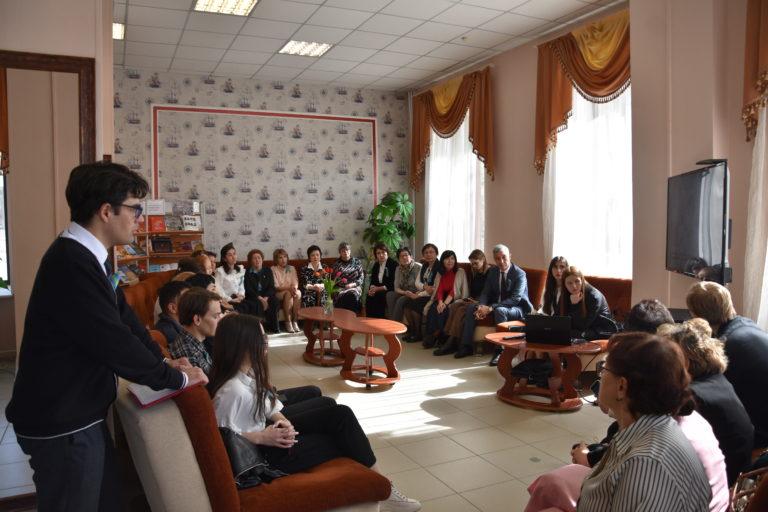
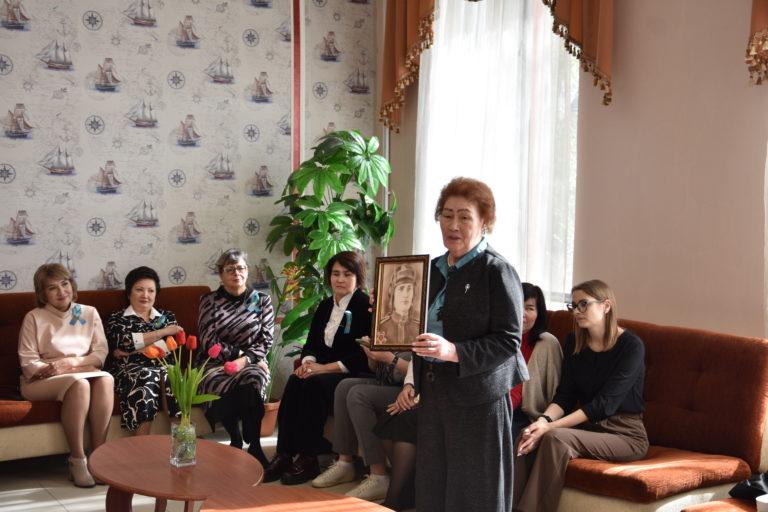
As bitter as it is to admit, history does not have a subjunctive mood: they decided and created that canvas; a mosaic of historical scenes from those times, how it was – without exaggerating or diminishing anything. Yes, this was not everyone’s favorite truth, pricking the eyes of history revisionists in the West.
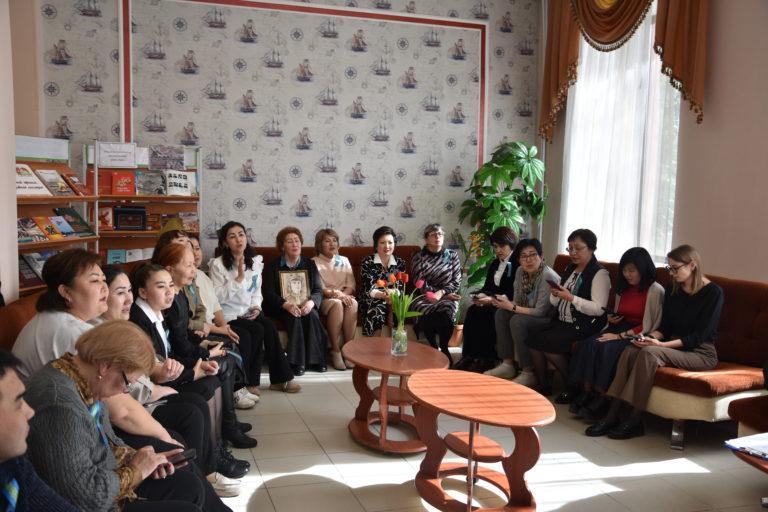
The newsreel showed the faces of people, some were frightened, others were reservedly businesslike, and others were probably hidden by glasses from the bright flame of flamethrowers, burning someone else’s city, someone else’s life and destroying another culture, and I looked, fascinated, almost detached: through the eyes of people who had long been No. No. These are not staged shots, I tried to convince myself. But why do I feel terribly scared when I look into their eyes? Could I, seeing all this, be indifferent, indifferent and cruelly cold? “Do they know what they are doing?” – came to my mind. And if they “know”: why don’t they stop? Why don’t they throw the Schmeisser into a puddle; they won’t stop the tank, and they won’t set fire to the house, blow up, kill, rape, rob, abuse… however, does it matter? Or not? Is this war similar to those that will happen later or to those that are going on somewhere not here?
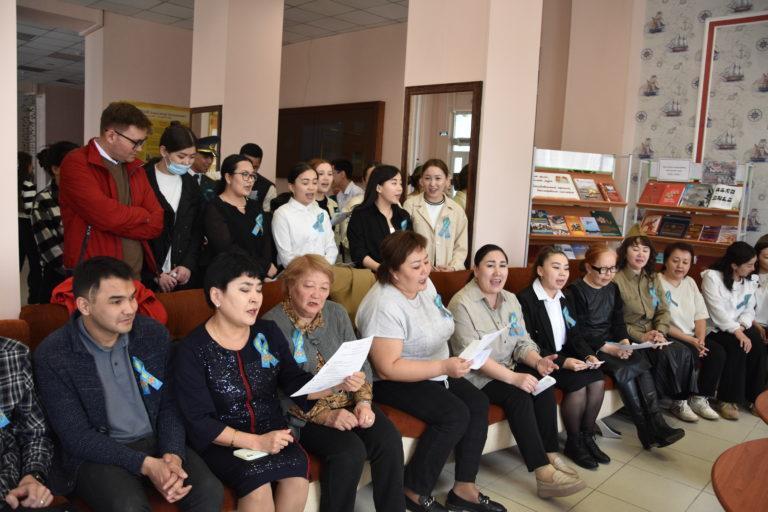
Remembering the heroes of the Second World War, we paid special attention to Rakhimzhan Koshkarbaev. After all, it was he who, on April 30, 1945 at 14.25 during the storming of the Reichstag, was the first to hoist the red banner on the Reichstag building.
We all gathered to relive, rethink, put emphasis and draw conclusions about whether every year on the same day it is worth remembering, retelling, touching a nerve and instructing those who will replace us.
So honestly, convincingly and very clearly expressed her attitude to the event, a first-year student of the Department of Foreign Languages and Intercultural Communications: Polina Naumenko – “On May 6, within the walls of the administrative building of our Academy, an amazing and significant event took place, which filled our hearts with warmth and touching. On this day, all departments united, like one big family, to honor the memory of veterans of the Great Patriotic War.
Each department prepared its own unique song, performed with enthusiasm and sincerity. This moment became special and unforgettable for me due to the fact that the emotions that we experienced at that moment took me back to the past when we gathered with the whole family, and my great-grandmother shared with us her memories of the war years.
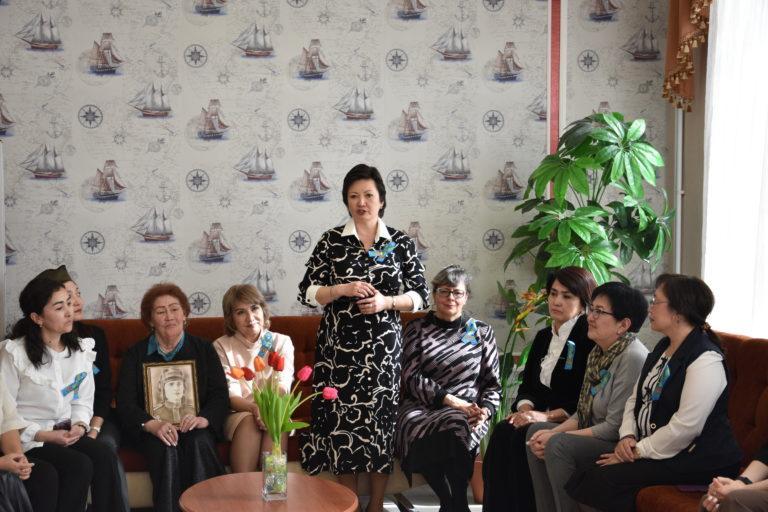
Today, unfortunately, my great-grandmother is no longer with us, but her spirit will always live in our hearts and in our memories. This event reminded us of the importance of preserving and passing on historical heritage, that none of us is forgotten and nothing is forgotten.”
For a more heartfelt atmosphere, we used poems, so I took Gustav Yuhanson’s poem “Natasha is Freezing,” dedicated to the feat of Leningraders and about peaceful people who, despite everything, want to help those dying of hunger and despair:
…And our streets are bathed in gentle light,
We live in peace, no deaths within our sight.
No need for us, at night, to shiver bare,
In shelters hiding children in despair.
Along the rails, German trains rush fast,
Yet our repose remains, unbroken, steadfast.
For Hitler’s halted at the Narva Gate,
By Leningrad’s Soviet hand, sealed fate!…
But to the children of our heroes brave,
We’ll send apparel, once war’s horrors waive…
And we know and will never forget: there was evening and morning, when a new day was coming… three hours zero four in the morning, Kyiv was bombed, we were told then… we weren’t there, but it doesn’t happen as I want.
We told and showed how it was then not now, to know that nothing is forgotten and no one is forgotten…
Until the Eternal Flame goes out… Such a quiet morning in June… has not yet dawned. How I want to sleep sweetly, just listening to these words:
All will come to aid your noble cause,
Heeding words of leaders, without pause.
Great battles lie ahead, this much we know,
But the enemy shall find no life to sow!
Tonight, I cannot find sleep’s tender grace…
May songs at dawn, dear friends, embrace
And lend support in every heartfelt cry.
Leningraders, my children, never say die!
Leningraders, my pride, forever high!
Gathered in such a cozy and pleasant atmosphere, both students and teachers shared their personal stories. How relatives provided assistance while working in a hospital, survived the siege of Leningrad, or were in the combat zone, defending the borders. The worst thing is that this is only part of what was happening at that time. Fortunately, we have the opportunity to hear these stories and preserve their memories.
We are together: which means we can save our beautiful world!
Authors:
Art. teacher of the Department of GED– Smirnov S.Yu.
Naumenko Polina – IN-23-1
Gartman Zinaida – Yu-21-1

